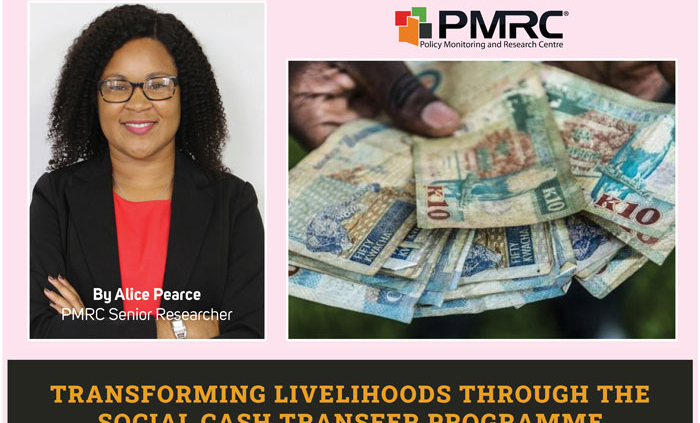Since the piloting of the Social Cash Transfer (SCT) programme in Kalomo in 2003, the programme has gained momentum and has shown strong positive impacts on the livelihoods of beneficiaries, particularly women and children who make up a significant section of the vulnerable in society. The programme has been scaled up over the years, growing from a target of about 700,000 beneficiaries to over a million. With the support of cooperating partners, Government has been implementing the programme to address high levels of vulnerabilities among key populations. These interventions are aimed at reducing the multiple vulnerabilities faced by the most destitute and incapacitated households in society to meet their basic needs, particularly on health, education and food security.
Over the years, an array of programmes have been added and are being implemented alongside SCT, providing an additional layer of social protection options to adequately respond to the vulnerabilities of various groups targeting different forms of vulnerabilities. A more recent pilot, targeting pregnant women, lactating mothers and children below the age of 24 months with the support from UNICEF in Western province is being implemented as part of the Cashplus Programme to improve nutrition in the first critical 1000 days. About 1,723 mother households have been targeted in Kalabo district of Western province and beneficiaries for this project receive K400.00 plus a nutrition top up amount of K150.00, bringing the total to K550.00 bimonthly while beneficiaries who are already on SCT receive a nutrition top-up of K150. Initiatives such as these, when implemented alongside SCT, play a pivotal role in reducing the multiple layers of vulnerability and expanding protection for the most marginalized Zambians.
Further, the impact on households receiving SCT is immense. An impact evaluation carried out between 2010 and 2014 found that the cash transfers improved all socio-economic indicators: schooling, health, general well-being, possession of shoes and blankets, and the regularity of meals. It was revealed that families were able to meet PTA fees, access health services and improve food security and nutrition (afford more than one meal per day). Findings from the Auditor General’s Report on Social Cash Transfer for the period 2014-2017 also indicate that SCT has helped with increasing the number of households owning assets such as bicycles, beds, chairs, radios as well as improved their dwellings from roof thatched houses to iron roofs and concrete blocks. Similarly, household assets had increased due to investment in small livestock such as chickens and goats from, which families could sell to send their children to school. Households were also able to hire labour for tilling their fields. In addition, it has been observed that there is a multiplier effect of the transfers in communities, adding between 49 and 69 Ngwee in value to every Kwacha transferred. Through spill-over effects, the SCTs have been instrumental in strengthening communities through improved social cohesion as households become actively involved in community economic activities. Beneficiaries are also able to contribute to the growth of their local economy, in that purchases for basic needs are made within their communities.
In view of the socio-economic benefits that the programme has demonstrated, there is need to strengthen this impact by providing an adequate legal framework that enshrines social protection as a basic human right to conform to a right’s-based approach in order to align with best practice through the enactment of social protection legislation that makes social protection justiciable. Countries such as South Africa and Kenya have enshrined these laws in their Constitutions, thereby making social protection a basic right that can be demanded by any citizen needing social protection and is justiciable. In the case of Zambia, social protection has been institutionalised and integrated in policy through the National Social Protection Policy and National Development Plans, however, citizens still cannot hold any office bearers to account for failure to implement these policies as is the case in South Africa. Therefore, law reforms surrounding social protection should be focused on aligning to best practice in order to adequately improve the livelihoods of the vulnerable in society.




